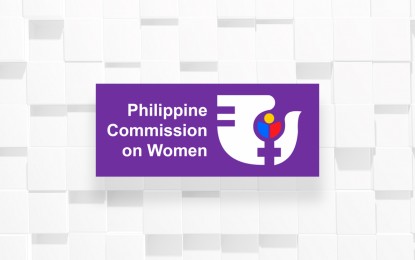
MANILA – The Philippine Commission on Women (PCW) is assessing the implementation of Republic Act No. 9262 or the Anti-Violence Against Women and their Children (VAWC) Act.
In a public advisory on Wednesday, the PCW said it is working on the assessment together with the Inter-Agency Council on Violence Against Women and their Children (IACVAWC).
About 20 years ago, the Anti-VAWC Act was signed into law by former president Gloria Macapagal-Arroyo on March 8, 2004.
This was after the harmonization of two bills on domestic violence and abuse against women in intimate partner relationships.
Apart from the IACVAWC, the Act allowed the creation of Committees Against Trafficking and VAWC at the subnational and local level, the establishment of Barangay VAW Desks, Women and Children Protection Desks in police stations, Women and Children Protection Units in DOH-retained hospitals, shelters for women victim-survivors, and other related service institutions.
In the past years, primary prevention programs have been implemented including a response system covering multi-disciplinary teams that address the protective, medical, psycho-social, and legal needs of victims; and hotlines where women victim-survivors could reach out for immediate assistance.
Moreover, standards and protocols for improving service delivery have also been put in place which contributed to increased help-seeking behavior of women victims as supported by the results of the 2022 National Demographic and Health Survey.
“Its enactment is a product of almost a decade of relentless advocacy and lobbying by women advocates, policymakers, other stakeholders, and the women victim-survivors themselves,” the PCW said.
“It is crucial to reflect on whether the law is still responsive to the needs of victim-survivors and the realities of service delivery vis-a-vis the present socio-economic landscape,” it added.
The assessment covers the review of efforts and interventions of duty bearers at the national, subnational, and local levels to draw highlights of accomplishments, good practices, challenges, and lessons learned in implementation.
The PCW noted that the findings will not only serve as policy inputs to the proposed amendments to the law, but will also inform the development of the National Action Plan to End VAW (NAP-EVAW), especially for the development of stronger measures for prevention, response, monitoring, and evaluation.
“There are still gaps and challenges that must be addressed at the policy and program levels,” it said.
Together with the IACVAWC, the PCW encourages all government partners, the private sector, and the general public to work together to ensure that the rights of women against intimate partner violence are emphasized and protected. (PNA)
